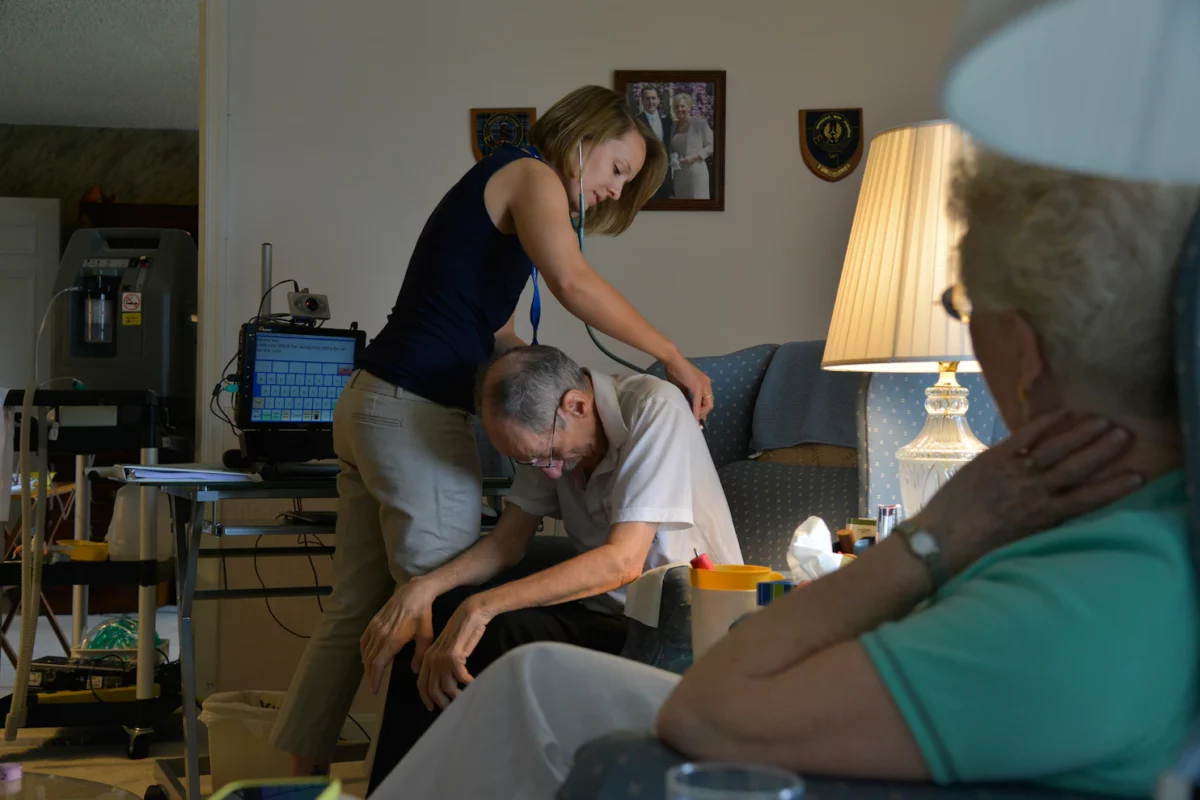The goal of hospice care is to enhance the standard of living for both patients and their carers who are dealing with an advanced, terminal illness. In order to let patients in the latter stages of an incurable disease live as comfortably and fully as possible, hospice care offers compassionate care. The hospice ideology affirms life while not attempting to hurry or postpone death. It recognizes death as the last phase of existence. Instead of treating the illness itself, hospice care focuses on the patient and their symptoms. For a person to spend their last days in respect and quality, accompanied by their loved ones, a group of experts collaborates in the control of symptoms. Additionally family-centered, hospice care includes
When Does Hospice Care Begin?
When a condition, such as advanced cancer, reaches the stage where treatment is no longer able to manage or cure it, hospice care is administered. In general, hospice should be employed when a patient’s estimated lifespan, if their illness progresses as expected, is no more than six months. Advanced cancer patients should consult with their doctor, family, and other carers to determine when hospice should start.
According to studies, hospice treatment is frequently started too late. Hospice is occasionally opposed by the doctor, the patient, or a family member who believes that it signifies “giving up” or that there is no hope. It’s crucial to be aware that you have the option to enter active cancer therapy at any moment after leaving hospice. However, the promise hospice offers is a good life, making the most of each day while suffering from a terminal illness.
Hospice may not be mentioned by all doctors, thus the patient or a family member may opt to bring it up. Ask your doctor or a representative of your cancer care team regarding hospice if your treatment isn’t working any longer and you’ve exhausted all other choices.
Starting Hospice Care
Anyone can recommend someone to hospice, including family, friends, clergy members, and doctors. Most individuals are recommend by a medical professional, although the referral procedure can also started by calling a nearby hospice provider. Typically, a hospice nurse will come to the patient’s home to confirm eligibility, go over the services the provider provides, and develop an end-of-life care plan. Most palliative care groups start delivering care a day or two after receiving a formal request.
Signs to Begin Hospice Care
No Aggressive Intervention Or Effective Therapy
Hospice care might be the best option if your elderly parents or a beloved one has a fatal disease and wants to be comfortable, spend time with family, and improve their quality of life. Instead of trying to cure the illness, hospice care concentrates on symptom control and pain reduction. A doctor starts hospice care when they determine that the patient has a six-month or shorter life expectancy if the illness progresses as expected. If your loved one survives for a duration longer than six months, the doctor may recertify them for extended periods. Medicare, Medicaid, and the majority of private insurance companies all fund hospice treatment for qualified patients.
Difficulty in Managing Symptoms
According to research, the pain gets worse in the latter two life years and is at its worst in the final four months. Breathing difficulties, agitation, and anxiety can all develop because of uncontrolled pain. It can also make loved ones’ grief processes take longer. Hospice care may be beneficial if you experience an increase in discomfort or other challenging symptoms including nausea, vomiting, difficulty swallowing, or pressure sores that don’t go better with medication.
Immediate Doctor Or Hospital Visit
As people age, they tend to need ER more often, especially adults 75 and older. A significant indicator of worsening health is a history of frequent hospital or doctor visits within the previous six months.
Require More Assistance
Your elderly parents or beloved ones will know more and be able to perform personal care tasks like washing, dressing, or eating as they once could. Alternatively, maybe they used to be able to go around without assistance, but now they need a wheelchair or walker. They may get advantage from hospice care if they have a chronic illness or if they cease doing activities they used to enjoy.
Appear Perplexed Or Restless
Elderly people nearing the end of their lives may occasionally feel confused, angry, or even hostile. They could not be aware of their location or their surroundings. Some people have delusions or hallucinations in which they believe they are much more powerful than they actually are or that others are attempting to harm them.
Weaker Communication Skills
Your elderly parents’ language and ability to listen to discussions may impacted by decreased flow, and hearing and vision impairments, among other concerns. They could consequently begin to distance themselves from the things and people they cherish.
Lack of Appetite or Weight Loss
To find out what and how much they are eating, check the freezer and pay attention to their eating patterns. Decreased appetite and unanticipated weight loss may indicate that the body is processing meals improperly or slowly. For example, a person who received food through a tube for a long time may now have an upset stomach. Alternatively, it’s possible that they aren’t eating much or that they don’t feel hungry, but they make an effort to eat.
Increase Sleep
Those who are nearing death may sleep more because their bodies are slowing down. They might spend most of the day sleeping or lounging in a chair.
Contract Various Infections
Worsening symptoms and recurring infections including pneumonia, sepsis, or urinary tract infections are frequent indicators of disease progression. You might observe an increase in the frequency of infections.
Feeling Anxious And Overburdened
As your aging parents or loved one requires more assistance, your stress levels rise. Admitting you need carer support and utilizing all of the tools at your disposal to offer your parents the best care possible is a sign of love.




